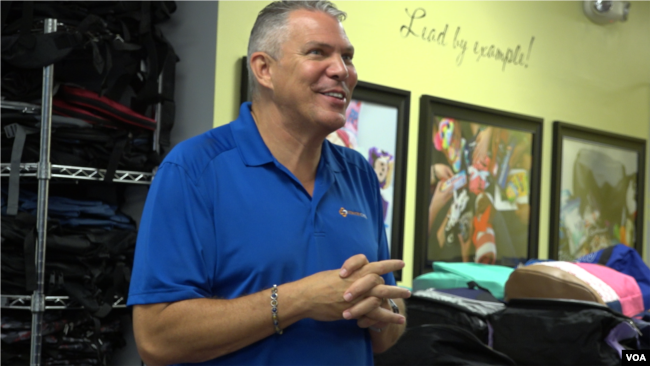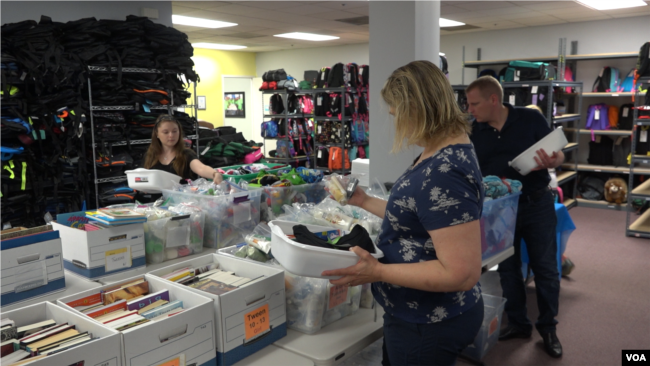
Backpacks Provide Dignity to Migrant Children
VOA News/Aline Barros
ROCKVILLE, MARYLAND —As migrant families and immigration advocates fight in court to return children to their parents, a Maryland nonprofit has been providing care packages to the children separated from their parents at the U.S.-Mexico border.
Volunteers fill backpacks with basic necessities, one by one, picking up shampoo, toothbrushes, blankets, pajamas, stuffed animals and books. They’ve been shipped to shelters in Texas, Florida, New York and Virginia — locations where migrant children were taken after crossing the U.S.-Mexico border.
“I’m not going to get into the political wave of what is happening, but I will tell you this: We have children who have walked into our country that needed us. They need us. They needed our cases, and so that’s what we decided to do,” Rob Scheer, founder of Comfort Cases, told VOA.
Scheer was inspired by his own experience in the foster care system when he started the Comfort Cases nonprofit in 2013 with his husband, Reece. It all started in his garage. Today, the charity serves about 39 U.S. states and territories, including Washington, D.C., and Puerto Rico.
Their mission is to give a child that “sense of dignity” and to “provide a proper bag, filled with comfort and essential items.” Children in foster care are often moved from home to home multiple times, and often have only a trash bag to gather their few belongings.
As a child, Scheer had to transport his belongings the same way. Some 40 years later, he and Reece adopted four children from the foster care system who also arrived with their meager belongings in trash bags.
“I just really felt like this was something that we needed to do. And at first, it was what we needed to do as a family. … Little did we know that it would become a national charity,” he said.
Migrant children
Once Scheer heard about the separations at the Texas border, he called his team and volunteers and said they could not just sit back and watch what was happening.
“At the end of the day, I don’t walk in the shoes of their parents. I can’t tell you the reasons why they came to the border or why they entered our country. The only thing that I can tell you is that they’re here, and these children need us,” Scheer said.
The backpacks contain special things.
“For the migrant kids, we have special stuffed animals made by a woman who donated, I think, a thousand of them. … They also get a Spanish book and an English book, or they get a book that’s half Spanish, half English,» said Marli Abramowitz, an intern at Comfort Cases.
Abramowitz said as soon as news broke about the family separations, the team packed and shipped cases to McAllen, Texas.
In 2017, the charity donated 11,000 cases. This year, the number is set to hit 14,000.
Linda Walker, who has been volunteering with the nonprofit for the past six months, said she immediately felt Comfort Cases had a role to play in the immigration issue.
She said even though the organization had to overcome some bureaucratic obstacles to reach the children, she hopes the backpacks hold “everyday necessities” — and the message that the migrants are welcome here.
“I know it’s been difficult. … I think the children there [in shelters], wrapped in their silver blankets, would look a lot more comfortable with some of the things that are in this backpack,” Walker said.
The Trump administration has scrambled to return more than 2,500 immigrant children who were separated from their parents under the “zero tolerance” policy.
Officials acknowledged in court documents it may have deported as many as 463 parents without their children.
“That’s something that could have completely been avoided, but now they don’t have their parents, and it’s going to be a hard journey to get them back,” Brennan Dunne, another Comfort Cases intern, said.
The high school student said helping others is a rewarding experience but believes the situation at the border shouldn’t have happened.
“You can’t rip children away from their parents,” Dunne said. “It’s unacceptable.”



